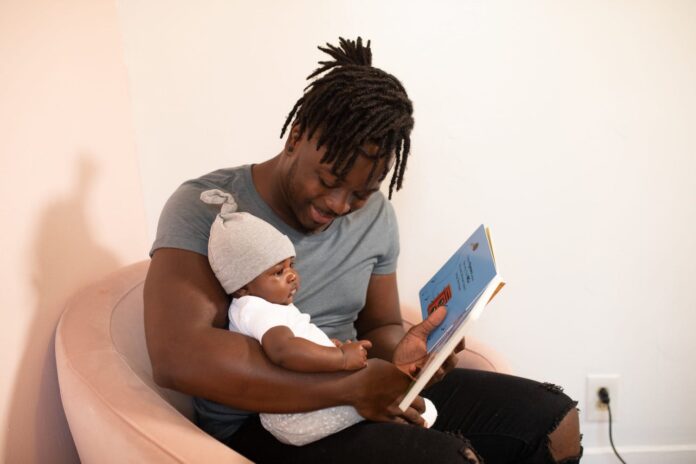
By
Put a poem to a beat, and you have hip hop. But depending on the school or classroom, not every child gets to fully experience the beauty of meter, rhyme, and imaginative awareness in its rawest form. And although there’s nothing wrong with reading the poems of Emily Dickinson, Shakespeare, and Walt Whitman, Black children also need to develop their creative expression and see their families and communities reflected through the verses of Black poets. Here are seven must-read Black poets that bring the Black experience, with all its joy and pain, to life:
1. Amanda Gorman
The youngest inaugural poet in U.S. history, Gorman stole the hearts of people worldwide in 2021 with her Inauguration Day poem, “The Hill We Climb.” (She continued turning heads with her simultaneous rise as a fashion star.) Gorman’s subsequent poem-turned-book met with resistance in early May after a Florida parent requested the book be removed from Miami-Dade County elementary schools due to its supposed “indirect hate.” But that hasn’t stopped Gorman. She has a children’s book and a poetry collection, “Call Us What We Carry,” out now, and according to her website, she has three more books forthcoming.
2. Yona Harvey
Howard University grad Harvey’s 2020 poetry collection “You Don’t Have to Go to Mars for Love” takes young readers on an Afro-futuristic journey. Imagining other worlds is one of Harvey’s specialties. In 2016, she became one of the first Black women to write for Marvel when she co-wrote the “Black Panther” spinoffs “World of Wakanda” with Roxane Gay. and “Black Panther & the Crew” with Ta-Nehisi Coates. She’s also worked with teenagers to write about mental health issues in collaboration with Creative Nonfiction magazine.
3. Jericho Brown
Pulitzer Prize-winning poet Jericho Brown is no stranger to confronting difficult topics through poetry. His award-winning collection, “The Tradition,” questions why and how we’ve become accustomed to terror: in the bedroom, the classroom, the workplace, and the movie theater. From mass shootings to sexual assault to the murder of unarmed people by police, the Shreveport, Louisiana, native’s prose interrupts complacency.
4. Elizabeth Acevedo
Afro-Latina poet and novelist Elizabeth Acevedo brings themes of identity, heritage, feminism, and social justice into her work. In “Inheritance: A Visual Poem,” the National Poetry Slam Champion speaks to the near-universal experience of Black people being made to feel there is something wrong with our hair:
“Some people tell me to “fix” my hair.
And by fix, they mean straighten, they mean whiten;
but how do you fix this shipwrecked
history of hair?”
Acevedo is also the New York Times-bestselling author of the novel-in-prose “The Poet X.”
5. Maya Angelou
The legendary author, actor, and civil rights activist’s frequently banned or challenged autobiography, “I Know Why the Caged Bird Sings,” made literary history as the first nonfiction bestseller by a Black woman. Angelou received several honors throughout her career, including two NAACP Image Awards for outstanding literary work in the nonfiction category in 2005 and 2009. And her poetry is unparalleled in its beauty and prolificness. “The Complete Poetry” contains 180 poems.
In 2010, she was awarded the Presidential Medal of Freedom, the highest civilian honor in the U.S., by then-President Barack Obama.
6. Langston Hughes
A defining figure of the 1920s Harlem Renaissance, Hughes was an influential poet, playwright, novelist, short story writer, essayist, political commentator, and social activist. In his famous 1921 poem “The Negro Speaks of Rivers,” Hughes taps into the Black community’s historical connection with waterways:
I bathed in the Euphrates when dawns were young.
I built my hut near the Congo and it lulled me to sleep.
I looked upon the Nile and raised the pyramids above it.
I heard the singing of the Mississippi when Abe Lincoln went down to New Orleans, and I’ve seen its muddy bosom turn all golden in the sunset.
His work also focused on the everyday lives of the Black working class through poems like”Harlem,” and “I,Too, Sing America.”
7. Ntozake Shange
Ntozake Shange’s best-known work, “For Colored Girls Who Have Considered Suicide / When the Rainbow Is Enuf,” is known as a choreopoem because Shange moved and danced while reciting it. Her many works express the struggles and obstacles Black women may face and are an empowering representation of sisterhood and coming of age.


